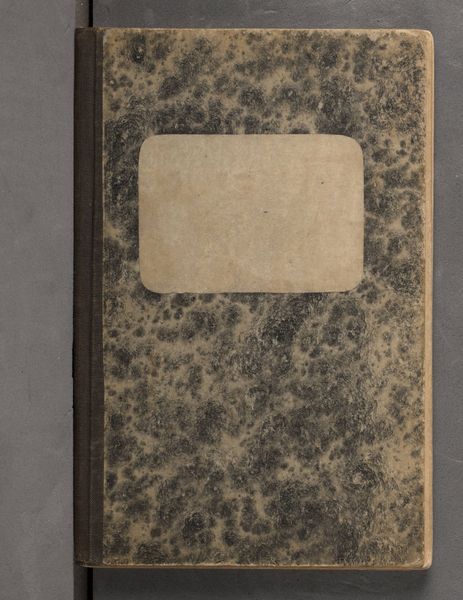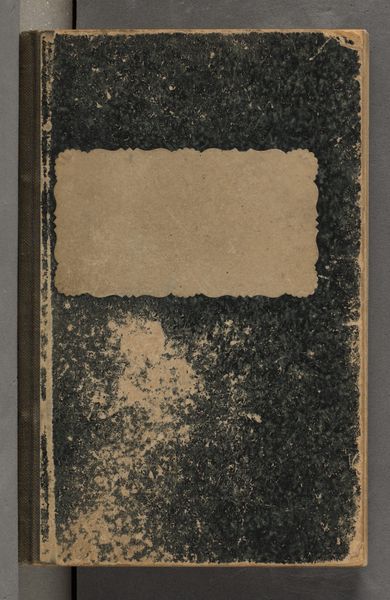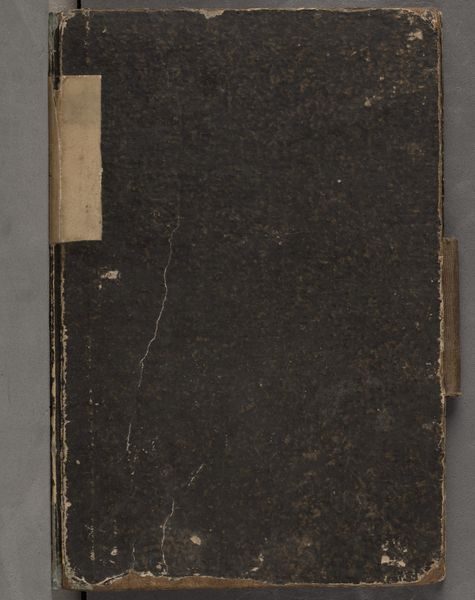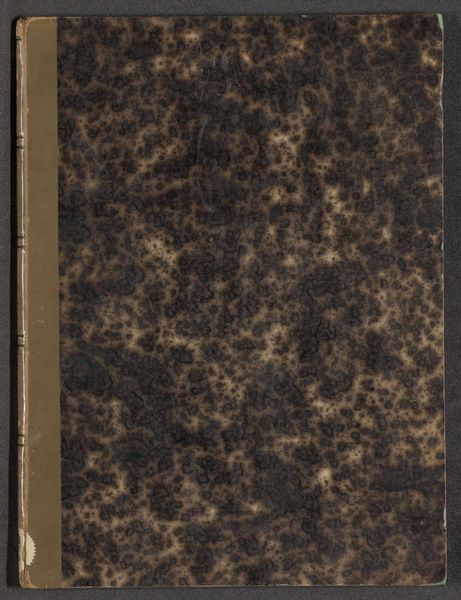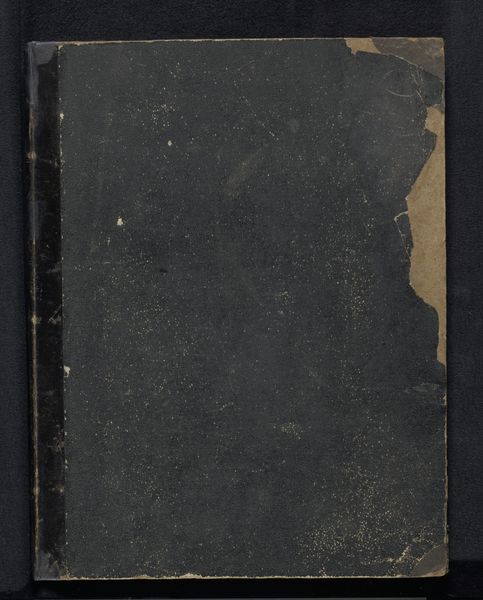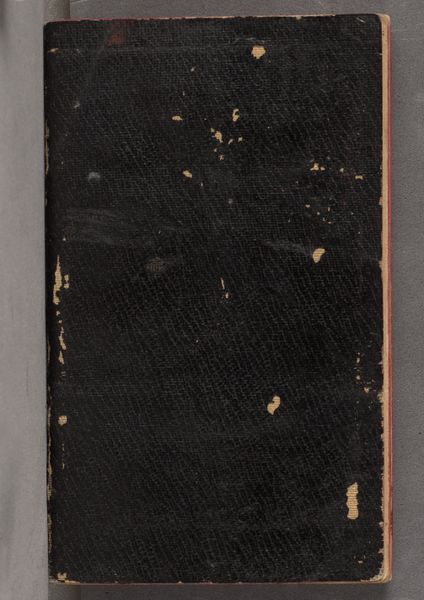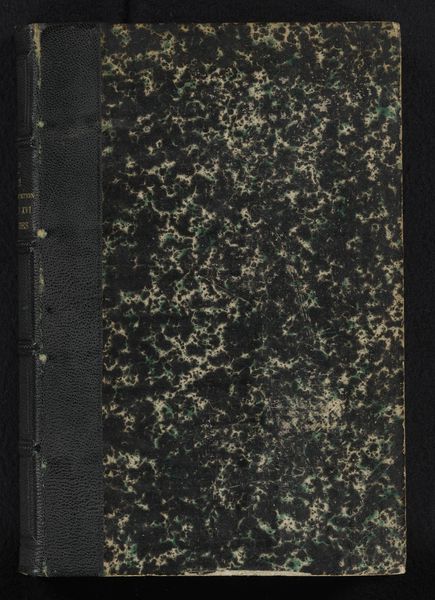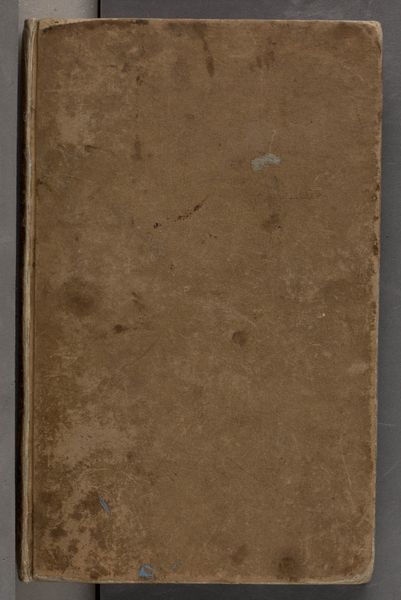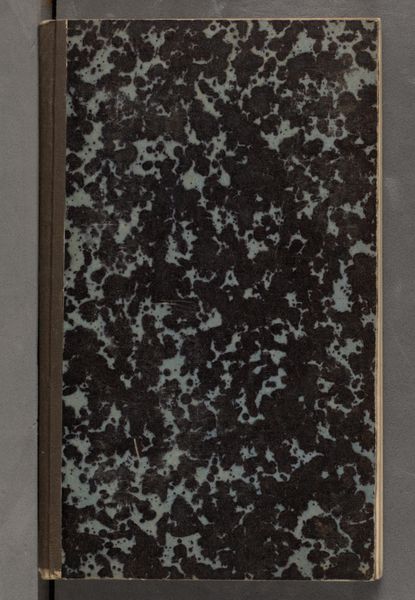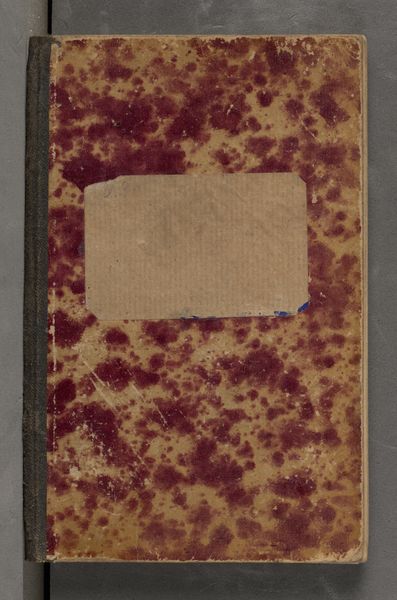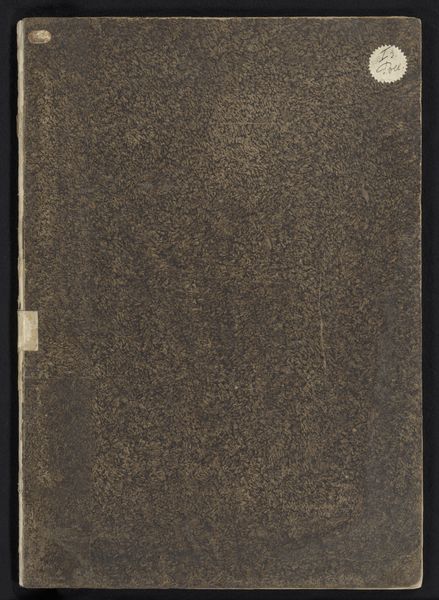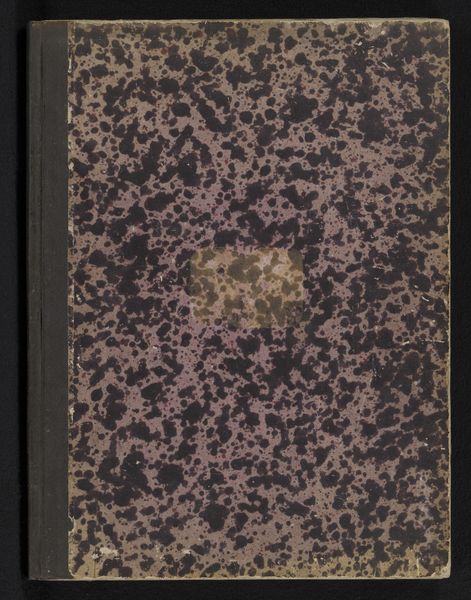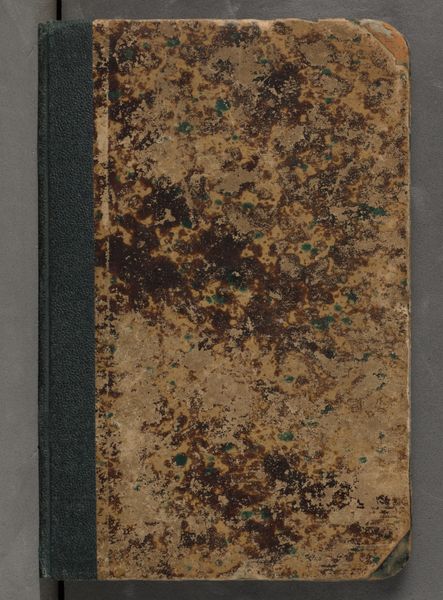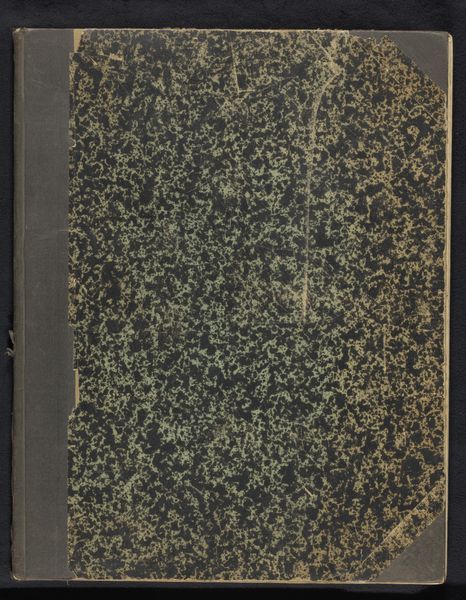
Copyright: Public Domain
Curator: Welcome. Today we're looking at Friedrich Metz's "Skizzenbuch," likely from 1876. It is currently held at the Städel Museum. It appears to be crafted using a combination of drawing and mixed media on paper, presenting an intimate look into the artist's process during the Romanticism period. Editor: It's… unassuming. A very worn notebook. The marbled cover, speckled with what looks like age, almost has a geological feel to it. Like looking at a slice of some ancient stone. It definitely evokes a sense of intimacy, knowing someone filled this with their thoughts and observations. Curator: Indeed. These sketchbooks served as personal spaces where artists could experiment, record observations, and develop ideas outside the constraints of formal commissions. We see the art world as a place driven by commissions but it's very important to have this space to see the practice and the development behind the art. Editor: That makes me consider the accessibility of art then, and who that art might be representing, with or without commissions. A simple object, yet heavy with potential meanings. One wonders what themes run through its pages. Were they sketches of landscapes, portraits, political commentaries? The silence of the closed book makes me all the more curious! Curator: Exactly! And given the context of Romanticism, it's reasonable to assume it may have contained nature studies, perhaps studies of people reflecting the movement's ideals. This humble object would likely have held significance not just for Metz, but also within a wider culture of artistic exploration. Editor: Yes, situating this small book within the vast historical narrative definitely broadens its appeal for me, it goes from just an ordinary sketchbook to an artwork imbued with history, memory, and potential resistance to social norms through romantic landscapes. Now it’s inviting. Curator: Well, thank you for sharing your perspectives. It reminds us how an object so modest can invite such grand discussions about artistic creation and its societal meaning! Editor: It's a beautiful reminder that sometimes the greatest stories are found in the smallest of containers. Thank you for the historical insights!
Comments
No comments
Be the first to comment and join the conversation on the ultimate creative platform.
